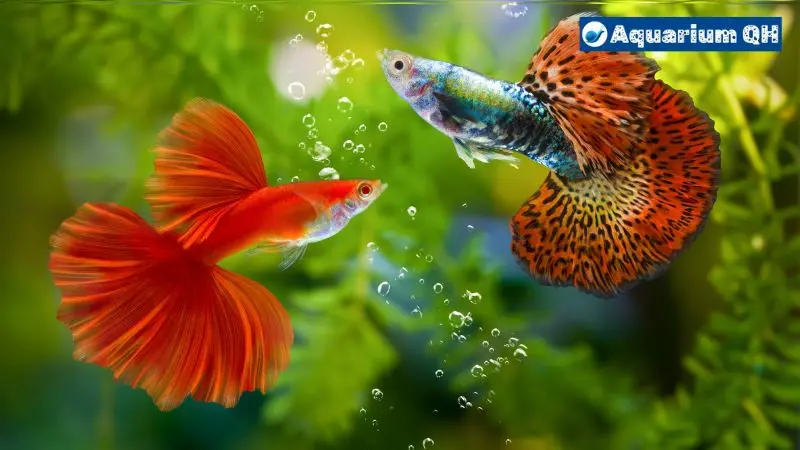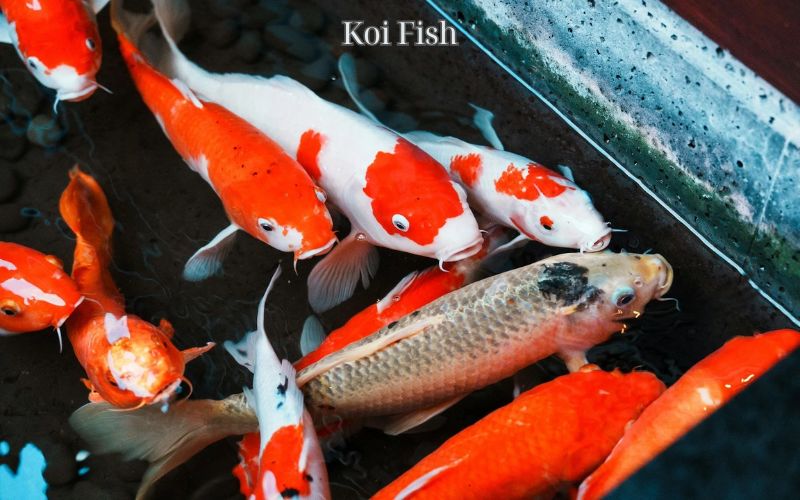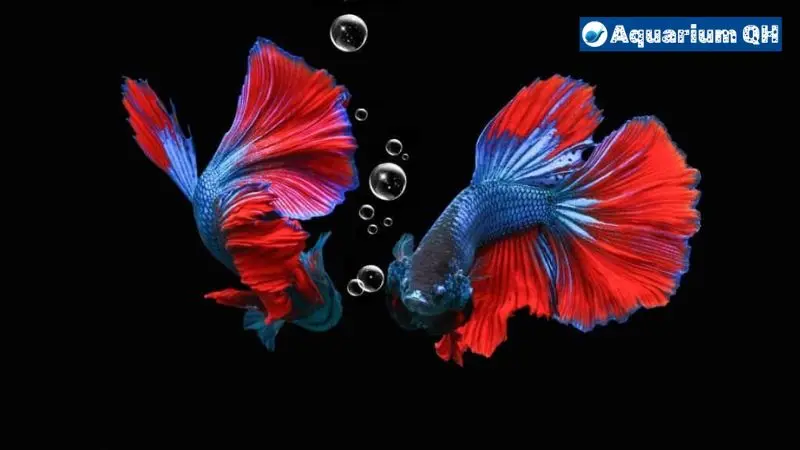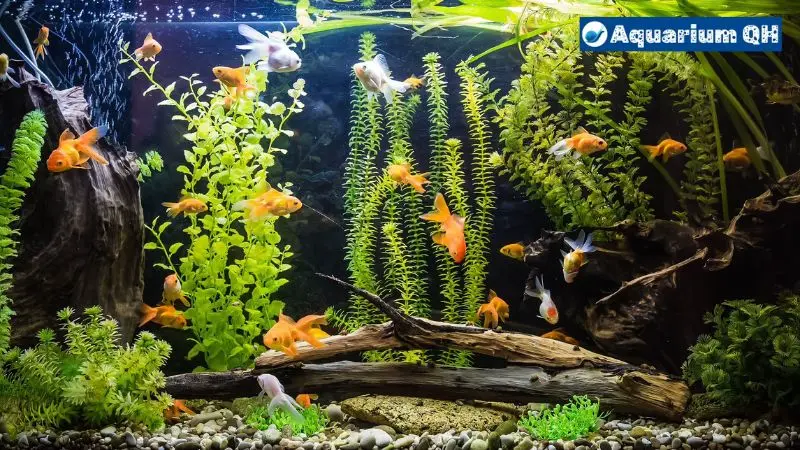Guppies, scientifically known as Poecilia reticulata, are one of the most popular and easily recognizable freshwater aquarium fish. Originating from South America, guppies are admired for their vibrant colors, playful demeanor, and relatively easy care requirements. However, ensuring proper nutrition is essential for maintaining the health and vitality of these beautiful fish. Let’s explore what to feed guppies with Aquarium QH.
Understanding Guppy Diet
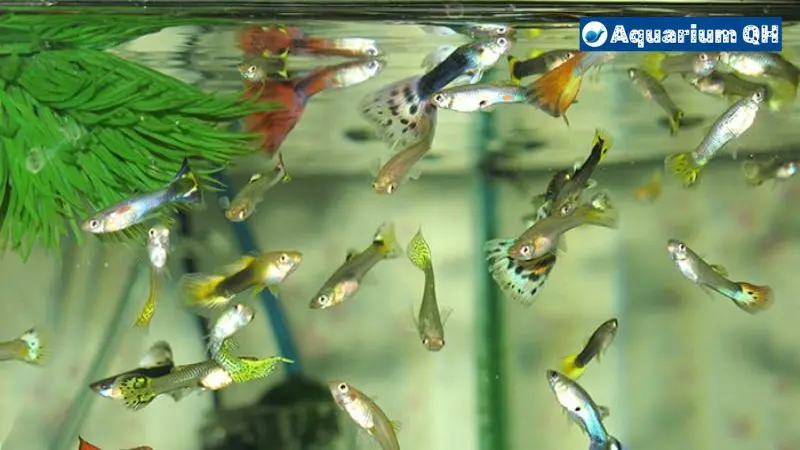
In their natural habitat, guppies are omnivorous and feed on a varied diet consisting of algae, small insects, and plant matter. To replicate their natural diet in captivity, it’s crucial to provide a balanced mix of protein, carbohydrates, vitamins, and minerals.
Commercial Guppy Foods
There are various types of commercial guppy foods available, including flakes, pellets, and freeze-dried options. Flakes and pellets are convenient and can provide essential nutrients, but some may lack dietary diversity compared to live or frozen foods.
Live Foods for Guppies
Live foods offer excellent nutritional value and mimic the natural hunting behavior of guppies. Popular live foods for guppies include brine shrimp, bloodworms, and daphnia. Culturing live foods at home is a cost-effective way to ensure a constant supply of nutritious treats for your guppies.
Vegetables and Fruits for Guppies
In addition to live and commercial foods, vegetables and fruits can be beneficial supplements for guppies. Blanched vegetables such as spinach, zucchini, and cucumber provide fiber and essential vitamins. Fruits like strawberries and mangoes offer a tasty and nutritious treat for guppies.
Feeding Frequency and Portions
Guppies have small stomachs and should be fed small amounts multiple times a day. Aim to feed your guppies 2-3 times daily, only offering what they can consume within a few minutes to prevent overfeeding and water pollution.
Avoiding Overfeeding and Underfeeding
Overfeeding can lead to obesity, bloating, and poor water quality, while underfeeding can result in malnutrition and stunted growth. It’s essential to strike a balance and monitor your guppies’ feeding behavior to ensure they are getting adequate nutrition without overindulging.
Supplements for Guppies
Supplements such as spirulina flakes, calcium, and vitamin-rich foods can enhance the health and coloration of guppies. However, moderation is key, as excessive supplementation can lead to imbalances and health issues.
Water Quality and Feeding
Maintaining pristine water quality is crucial for the overall well-being of guppies. Uneaten food can quickly degrade water quality, leading to ammonia spikes and other harmful conditions. Regular water changes and proper filtration are essential to prevent contamination.
Special Considerations for Breeding Guppies
Breeding guppies have increased nutritional needs, especially females during pregnancy. High-protein foods like brine shrimp and bloodworms can support optimal growth and development of fry. Additionally, providing ample hiding places for fry can reduce the risk of predation.
Common Mistakes in Guppy Feeding
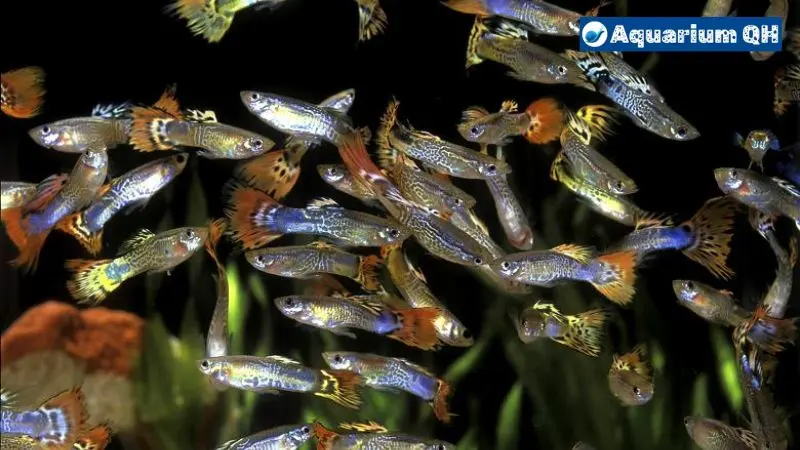
One common mistake is overlooking dietary diversity, which can lead to nutritional deficiencies over time. Another is failing to adjust feeding regimes during breeding periods, which can result in stress and reduced reproductive success.
Signs of a Healthy Guppy Diet
A healthy guppy will exhibit vibrant colors, active swimming behavior, and a hearty appetite. Observing your guppies for signs of lethargy, loss of color, or reduced appetite can indicate potential dietary issues.
DIY Guppy Food Recipes
Preparing your own guppy food allows you to customize the ingredients and cater to specific dietary needs. Popular DIY recipes include gel-based foods made from a blend of vegetables, proteins, and supplements.
Feeding Guppies in Community Tanks
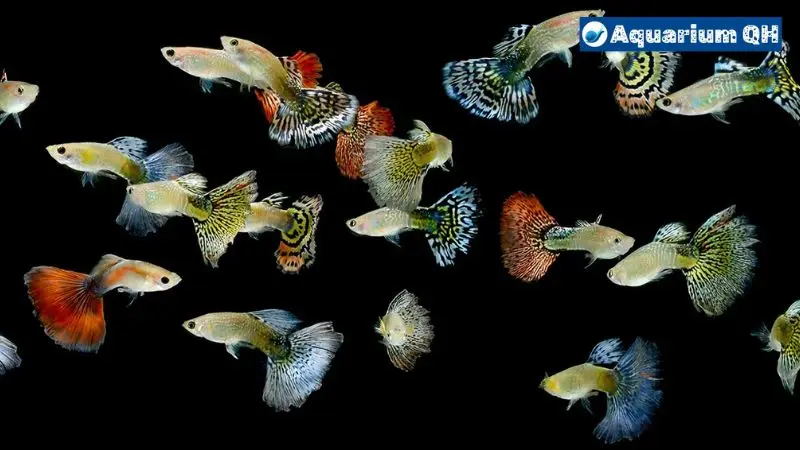
When keeping guppies with other fish species, it’s essential to choose foods that are suitable for all tank inhabitants. Slow-sinking pellets or gel-based foods are ideal for ensuring all fish receive their fair share without causing excessive competition.
Conclusion
In conclusion, providing a varied and nutritious diet is essential for the health and well-being of guppies. By incorporating a mix of commercial foods, live treats, and fresh vegetables, you can ensure your guppies thrive in their aquarium environment.
FAQs
How often should I feed my guppies? Guppies should be fed small amounts multiple times a day, ideally 2-3 feedings.
Can guppies eat vegetables? Yes, guppies can eat a variety of vegetables such as spinach, zucchini, and cucumber.
What are the signs of overfeeding in guppies?
Signs of overfeeding include bloating, obesity, and deteriorating water quality.
Can guppies survive on flakes alone?
While flakes can provide essential nutrients, it’s best to supplement with live or frozen foods for dietary diversity.
Do guppies need special food when breeding?
Yes, breeding guppies have increased nutritional needs, especially females during pregnancy. High-protein foods like brine shrimp and bloodworms are beneficial during this time.

